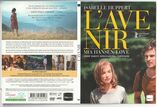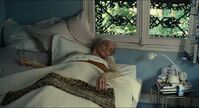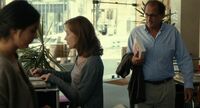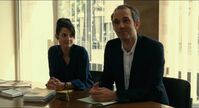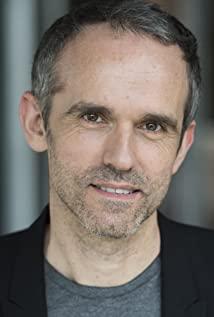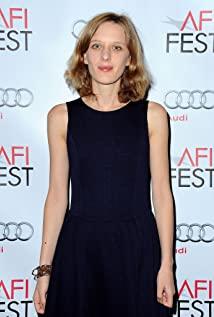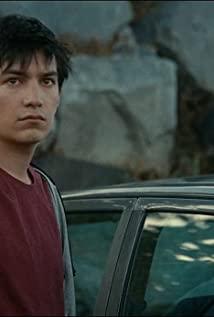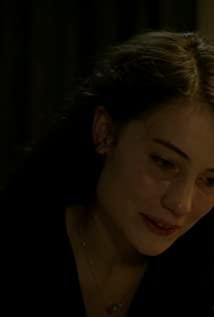Mia Hansen-Løve can be regarded as a cutting-edge female director in the French film industry in recent years. She is only 36 years old. Her current husband is Maggie Cheung's ex-husband, French director Olivier Assayas. This delicate-minded woman has a lot of goods in her belly. All of her recent works make people feel a kind of meticulousness and authenticity from a female perspective during the viewing process. The films shot by Mia Hansen-Løve are mostly based on the stories of herself or her friends. This "Future Thing" is her fifth film, and it is no exception. The epitome of the marriage of two philosophy teachers comes from She herself is also the parent of a philosophy teacher. This is a German-French collaboration. Although the background of life in the film is in Paris, it is obviously a fusion of German philosophical thought and the works of German musicians. The name of Natalie's husband Hans is also a very German name. In the film, Natalie's mother said, "God, you have found someone with such a terrible name to marry." Both France and Germany focus on ideas. And the country of philosophy, the film integrates philosophy into it, which is very exciting. If you don’t understand, you can only classify this film as the subject of a mid-life crisis of a woman who has had an extramarital affair with her husband and has a bad career. This is a great pity. of. Although Natalie and Hans are both teachers of philosophy, from the large number of dialogues in the play, Natalie is a follower of Descartes, Plato, and Socrates, while Hans is inclined to Kant's philosophy and is German. fanatical follower of philosophy. Different philosophical outlooks actually reflect different outlooks on life, which is the origin of the several debates about family life arranged by the director in the film. But he didn't like it, Hans satirized that Natalie had been influenced by the French '68 student movement, had joined the Communist Party, etc. Philosophical discussions and debates run through the film from beginning to end. Debate to illustrate some philosophical points of view. How to infuse philosophy into a film work? Will it be boring? Mia Hansen-Løve cleverly and just rightly connects philosophy to personal life. The film does not use the reasoning of philosophers to get it. Self-satisfaction is the routine, but the philosophical point of view is given meaning and penetrated into actual life, which is reflected in a lot of scenes in the life of the protagonist Natalie played by Isabelle Hupper. Scene 1:At the beginning of the film, Natalie has a question when grading students' homework, "Can we put ourselves in other people's shoes." This question has been interspersed in Natalie's relationship with her mother. Her mother is a neurotic, delusional old lady. She was a beautiful model when she was young. She used to call Natalie in the early hours of the morning, several times a week to have the firefighters come to her rescue. Her old life Negative and decadent, Natalie has been running for her at home, school and mother. He is hesitant and tangled in the choice of home and nursing home, hoping to choose a way that is good for mother as much as possible. When we live in the world of philosophy, teach philosophy, and be quiet in the ocean of wisdom of great human thinkers, in reality, can we face these existing, turbulent real lives? In fact, this has gradually brought out the true meaning of the movie's original intention of "Future Events". Future events are all kinds of new problems that life may bring. For Natalie, the constant change in life isn't just how to house her mother, stay at home or send to a nursing home? There is also the cooperation with the publishing house, and the husband is giving up his marriage with another woman because of her. On the surface, Natalie appeared calm and strong in the face of one incident after another, but in fact she was not indifferent. This is where the director's skill lies. She cuts in from a delicate female perspective and feeling. Natalie's emotional fluctuations and inner waves are expressed in many details, such as body language and expressions. For example, when she came home and saw the flowers her husband had placed on the living room table, she angrily took out the flowers and stuffed them twice, trying to put them in the trash can that apparently looked too small, and then she Pulled out the flower again, took a reusable bag and put the flower in it. She threw it together with the reusable bag into the outdoor public trash can. After throwing it in, she came back to retrieve the reusable bag and left the flower behind. trash can. Although it is a detail, this series of actions shows a woman's hatred and contempt for a man vividly. I don't care about your flowers, I'm so disgusted that I can't even look at them, so I put a bag over them. In fact, your flowers are not worthy of me being buried with a reusable bag. This kind of thing can't affect me, so I don't have to lose my mind and throw away a usable reusable bag for nothing. I think this detail is really well designed. Only a woman can have such a small touch and incorporate it into the plot of the movie. For another example, at Natalie's mother's funeral, she read a passage from Blaise Pascal's "Book of Thoughts" Scene 2: "This is what I see and disturbs me. I look everywhere, but see only darkness. Nature has given me nothing but the essence of doubt and anxiety. If I cannot see things that point to God, I can only I consider myself negative. If I saw the traces of the Creator, I would rest in my faith. But seeing too much negation and too little affirmation, I am in a state of resentment. I have prayed countless times, if God wishes to bless him, then I have to give clear instructions. If the mark he leaves is ambiguous, he will erase it. He can either express or be silent. I can find where I should follow. But I am in a situation where I don't know who I am, and I don't know who I am. I know what to do. I know neither my situation nor my responsibilities. I expect the best and follow it with all my heart. For eternity, I will give everything." This passage is inserted by Natalie's monologue, and The plot of the film is just right. The camera cuts to Natalie sitting on the bus, crying, emotionally unstable, crying and laughing when she sees her husband and lover walking down the street, this scene and the paragraph above Complement each other. Philosophy alludes to life, and Natalie's every move narrates her emotional ups and downs. Another short shot of Natalie lying in bed on the student's farm holding Pandora crying, it's all about her emotional release, and again, she's not indifferent, she's not unmoved by what's going on. Scenario three: A conversation between Natalie and his favorite student on a farm in the mountains, N: I didn't know you even read the books of Zizek (inherited Lacan's thought, the school of psychoanalysis.)? ... F: I explore the problem between behavior and thought. This is not your teaching focus. N: Why do you say that? I have always insisted that life needs to be one with thought. I've been trying to do this myself. F: Yes, that's right. But not beyond the realm of the heart. N: How to say it? F: You only care about your daily behavior and don't let it damage your values. But it's unacceptable to let your mind spin out of control and lead to dramatic changes in your life. N: What do you want to say? F: Your demonstration is enough to make you feel like an intellectual. This makes you comfortable without jeopardizing the lifestyle. Although Natalie did not agree with this statement on the surface, it actually hit her heart. She has been trying to suppress her true thoughts consciously or unintentionally, avoid emotional out of control, and try to keep her life from being affected and continue to function normally. Natalie was lying on the bed crying, which is also a small detail placed by the director. She understands philosophy and knows how to use reason to control emotions, but there are times when she can't control her emotions. Maybe it was fleeing and being unable to face it. Natalie made up a reason to say that her house in Paris was leaking and she had to go back early. In fact, the teacher and the student had already made a tacit understanding. This is a philosophical and speculative dialogue, combined with changes in reality, so that all audiences can understand. Scenario four: Natalie quoted a passage in class "When we have desire, we can be unhappy. We wait for it to come true in the future, and if happiness does not come, hope will spread. As long as the passion lasts, the magic of fantasy will be How long. This state is self-sufficient and the anxiety that accompanies it is a satisfaction that fills the real. Misfortune belongs to those who have no desires, and they therefore lose everything he has. Hope is more satisfying and happy than having Real happiness comes before existence." This excerpt is from Rousseau's epistolary novel The New Heloise. Although it is a description of the love between the protagonists Julie and Saint Pule, it can also be insinuated in other aspects of life. Here it echoes the title of the film "Future Things". It also corresponds to Natalie's role change, from mother to grandmother, and has new expectations for the future of life. Enjoy the process of life, pain and unease, turbulence and loss, live, feel, walk through this road, look back, and all the things you have experienced are the thickness of life that can be praised. People who are indifferent and have no desires have never had anything. Scene 5: Death appears several times in the film. In the beginning, at the writer's grave by the sea, the funeral of Natalie's mother, reading a book called "Death" (by Radimir Jankorevich) in the subway. The arrangement of these bridges forms a strong contrast with the turbulent and boiling life, and it is also an emphasis. Philosophy is not a non-action group that only stays at the theoretical level, it can be embodied in the movement of the essence of things. Many casual scenes arranged in the film: travel, boat ride, moving from one place to another, trains, cars, swimming, walking, giving birth, etc., are all a kind of longing for life and To follow, to survive is a philosophy. Finally, let's briefly talk about the music in the film : 1. The students picked up Natalie at the train station, and the two drove to the farm in the mountains together. My Daddy by Woody Guthrie (Flies a Ship in the Sky)Slowly flowing, this Woody Guthrie is the idol of Bob Dylan who won the Nobel Prize in Literature this year. The song is cheerful, with a child's innocence and imagination, there is a kind of vitality. Natalie lived with her husband for 20 years and only listened to the same type of music, Brahms and Schumann. The Woody Gurthrie is moving in the car, and Natalie said that she has found unprecedented freedom again. After her husband left, her children grew up and left home, and her mother died. 2. The lyrics of Schubert's "Auf dem Wasser zu singen" (Auf dem Wasser zu singen) roughly describe the beauty of rafting on the lake. Time passes, and tomorrow, no matter how good the time, will disappear like yesterday, ride on the wings and disappear into the infinite. time. The tune comes when Natalie leaves her ancestral home in Brittany where her husband used to take a family vacation. The tune echoes the good old days of Natalie and her husband passing by. "The deceased is like a gentleman, and wants to ride the wind away." Isn't this the beginning and end of everyone's life? 3. Donova's Deep Peace (* Don't search for it on the intranet, the list is wrong, if you can go to the extranet, go to the extranet to find it) The song appeared when Natalie was sending Pandora to the mountain farm. It rang at night when she was dizzy. The lyrics and melody of this song are very beautiful and have the power to make people quiet. As the music slowly sounded, she returned home from the farm, and life seemed to gradually return to the track. 4. Unchained Melody - The Fleetwoods The end of the film, life goes on, the subtitles are out, this is the song, very tender, home, the continuation of new life, love, that we all long for. More positive life attitude videos. This is an optimist's film and happiness can be found at any stage of life, the happiness of cultivating outstanding talents for teachers, the happiness of children, the happiness of regaining freedom, and the happiness of being a grandmother. This is not a film that pleases the masses, it is looking for an audience that belongs to it and understands it. The introduction of music, books, and philosophy is the link, the code and the mark of the division between the director and her audience. Bravo! The best director award is well deserved and can't be written any more, I've controlled the length but still wrote a full four pages of documentation.
View more about Things to Come reviews



